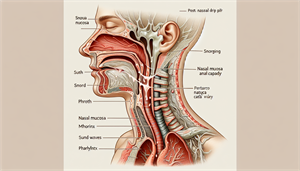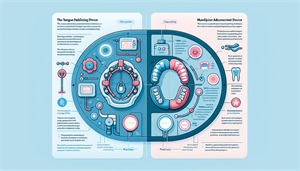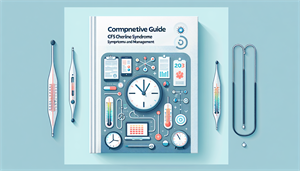
The Hidden Connection: Uncovering the Truth About Post Nasal Drip Snoring
Imagine waking up every morning feeling exhausted and unrested, only to learn that your post nasal drip snoring is the culprit. What if we told you that there is a hidden connection between your snoring and post nasal drip? Uncovering this truth might just be the solution that brings you the peaceful, restful sleep you’ve been craving.
Key Takeaways
Post Nasal Drip is a condition caused by allergies, sinus infections or colds which can lead to snoring. Various treatments and lifestyle changes may help reduce post nasal drip and snoring. Chronic snoring should be addressed promptly as it can lead to serious health issues. Seek medical advice for proper diagnosis and treatment.
Understanding Post Nasal Drip
Post Nasal Drip is a condition where excess mucus accumulates in the back of the throat, often caused by allergies, sinus infections, or common colds. Our nasal passages are designed to keep the air we breathe clean and moist, but sometimes they produce too much mucus, leading to chronic nasal congestion and other issues.
Allergic Rhinitis
Allergic Rhinitis, commonly known as hay fever, is a condition characterized by persistent nasal congestion resulting from inflammation and congestion. It can disrupt smooth nasal breathing and contribute to post nasal drip snoring. Allergens like house dust mites and pets may be responsible for chronic rhinitis, causing inflammation and congestion in the nasal passages.
Various treatments are available for Allergic Rhinitis, such as over-the-counter oral decongestants, sodium cromoglicate nasal spray, and immunotherapy as approved by medical professionals. These treatments can help alleviate sinus related snoring. However, being aware of the potential side effects of over-the-counter oral decongestants, such as insomnia, irritability, nervousness, heart palpitations, and elevated blood pressure is necessary.
Steroid nasal spray serves as an alternative treatment for post nasal drip and snoring.
Sinus Infections
Sinuses are air-filled cavities located in the frontal region of the skull, and a stuffy nose can be a result of sinus congestion or post nasal drip. Healthy sinuses contain only air, and maintaining healthy sinuses can help alleviate sinus-related snoring. Sinus infections, such as chronic sinusitis, can lead to post nasal drip and snoring, as they cause inflammation and blockage in the nasal passages.
A deviated septum, blocked, clogged, or misshapen sinus cavities may contribute to snoring, and compromised nasal breathing can result in nasal snoring and mouth breathing, both of which can contribute to snoring.
To prevent snoring caused by sinuses, you can consider the following options:
- Consult a doctor for proper diagnosis and treatment.
- Explore home remedies such as nasal irrigation, steam inhalation, and using a humidifier.
- Consider more permanent solutions like Continuous Positive Airway Pressure (CPAP) therapy, oral appliances, or balloon sinuplasty.
Common Colds
Post nasal drip can be triggered by common colds, and both conditions may present similar symptoms, including congestion, coughing, and sore throat. A common cold typically lasts for 7-10 days and can lead to nasal congestion and swelling of the throat, which can worsen snoring.
Over-the-counter cold medications like antihistamines, decongestants, and nasal sprays can potentially aid in improving post nasal drip and ensuing snoring. These medications can help reduce inflammation in the sinuses, reduce mucus production, and alleviate nasal congestion, which can consequently alleviate post nasal drip and reduce snoring.


